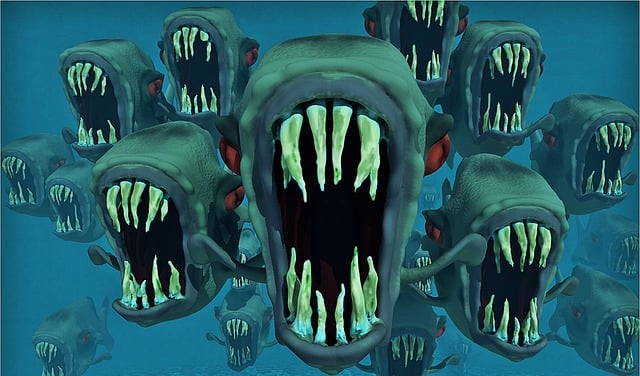Unraveling the Mystery: Wisdom Teeth Removal Explained
Welcome ????to “Unraveling the Mystery: Wisdom Teeth Removal Explained”! If you’ve ever wondered why wisdom teeth can cause such discomfort or why they need to be removed, look no further. In this informative article, we will delve into the world of wisdom teeth, exploring their purpose, the problems they can cause, and???? the process of their removal. So, grab a cup of tea, get comfortable, and let’s demystify the intriguing journey of wisdom teeth ????together!
1. Understanding Wisdom Teeth: A Guide to the Basics
Wisdom teeth, also known as third molars, are the last set of teeth to emerge, usually in the late teens or early twenties. These teeth were once necessary to help our???? ancestors???? chew tough food, but over time, our jaws have become smaller, rendering wisdom teeth unnecessary in most cases. Here’s a comprehensive guide to help???? you understand these intriguing teeth:
1. What are the ????common problems associated with ????wisdom teeth?
- Impaction: Wisdom teeth often don’t have enough room to fully ????emerge, leading to impaction. ????This can cause pain, swollen gums, and even infections.
- Crowding: The emergence of wisdom teeth can disrupt???? the alignment of existing teeth, resulting in overcrowding and problems with your bite.
- Decay and gum disease: The location???? of wisdom teeth at the back of ????the mouth makes them harder to clean, increasing the risk of cavities and gum inflammation.
2. How can I know if I have???? impacted or problematic wisdom teeth?
-
- Persistent pain and swelling at the back of your mouth.
- Difficulty opening your mouth or chewing.
- Bleeding or tender gums near your back teeth.
- Unpleasant taste or bad breath that won’t go away.
????
????

2. The Science behind Wisdom Teeth: Why Do We Have Them?
Wisdom teeth, also known as third molars, are the last set of teeth to emerge in the back of our mouths. While not ????all individuals develop wisdom teeth, those who do often face various issues???? due to their growth. Here’s???? a look at the science behind wisdom teeth and why they exist:
1. Evolutionary Purpose:
- Wisdom teeth were significantly more ????useful to our early human ????ancestors, as their diet consisted of tougher foods like roots, nuts, and meats.
- These teeth provided extra chewing power and acted???? as replacements if their other molars were lost due to wear.
- Today, due to advancements in cooking and diet, our jaws have become ????smaller, leaving limited space for wisdom teeth to grow in. This often leads to complications.
2. Causes of Problems:
- Crowding: Lack of sufficient space in the mouth can cause wisdom teeth to emerge misaligned or partially erupted, leading ????to pressure, pain, and swelling.
- Infection: Partially erupted wisdom teeth???? make it???? difficult to clean the area properly, increasing the risk of ????infection or gum disease.
- Dental Caries: Wisdom teeth are particularly prone to decay since they are harder to reach and harder to clean effectively.
Overall, understanding the science behind wisdom teeth helps us comprehend their purpose and challenges. While some individuals may never experience issues with their wisdom teeth, others may need to consider removal to alleviate discomfort or prevent potential complications.

3. Signs and Symptoms: When Do You???? Need Your Wisdom Teeth Removed?
Removing your wisdom teeth is a common dental procedure that may be necessary in certain situations. While it’s not a standard practice to remove all wisdom ????teeth, there ????are signs and symptoms that indicate extraction may be required. Here are some indicators that you may need your wisdom teeth removed:
- Pain and Discomfort: If you experience persistent pain or discomfort in the back of your mouth, it could be a sign that your wisdom teeth are impacted or infected. This can occur when there’s not enough space for them to fully emerge or they grow at an angle.
- Gum Inflammation: Swollen, ????red, or tender gums around the area ????where your???? wisdom teeth are erupting can be a clear sign that extraction is necessary. Inflamed gums are often accompanied by pain and can make it difficult to brush and floss effectively.
- Difficulty in Chewing: If you face challenges while eating or have recurring instances of biting your cheeks or tongue due ????to overcrowded wisdom teeth, it may be time to???? consider removal. These difficulties can lead to further dental problems if left unaddressed.
It’s important to consult with your dentist if you experience any of these symptoms. They will???? evaluate your situation and recommend the best course of action. Remember, each person is unique, and the decision to remove wisdom teeth will be made on an individual basis. By staying informed and seeking professional advice, you can make the right choice for your oral health.

4. The Wisdom Teeth Extraction Process: Step-by-Step Explained
????
Having ????your wisdom teeth extracted can be a daunting experience, but understanding the process can help alleviate any anxiety. Here’s a step-by-step breakdown of what to expect during a typical wisdom teeth extraction:
-
- Consultation: The first step is to schedule a consultation with an oral surgeon. They will evaluate the position of your wisdom teeth, assess any potential complications, and provide recommendations and instructions for the procedure.
- Preparation: On the day of your extraction, you will receive a local anesthetic or sedation to ensure a painless experience. The surgeon will explain the options available???? and help determine the best method for your specific case.
- Incision and Tissue removal: Once the anesthesia has ????taken effect, the surgeon will make a small ????incision in your gum tissue to access the impacted wisdom tooth. If the tooth is partially or fully impacted, the surgeon may need to remove some bone before ????extracting it. The tissue surrounding the tooth will be gently separated and removed, providing access to the tooth.
-
- Tooth Extraction: Using specialized tools, ????the surgeon carefully loosens the wisdom tooth from the jawbone and divides it into smaller sections if ????necessary. The tooth is then delicately extracted from its socket. ????During this process, you may feel slight pressure, but you???? shouldn’t experience any pain.
- Stitching and Recovery: If required, the???? surgeon may place dissolvable stitches to close???? the incision properly. Afterward, you will be given post-operative care instructions including the???? prescription of pain medication and tips to manage the swelling???? and discomfort. It’s crucial to ????follow all the guidelines strictly for a swift recovery.
Remember, every extraction is unique, and your oral surgeon will guide you through the process tailored to your individual case. By understanding the steps involved, you can go ????into the procedure with confidence and peace of mind.

5. Who Needs Their???? Wisdom Teeth Removed? Assessing the Need
When it comes to wisdom teeth removal, it’s important to assess the need for the procedure on???? an???? individual basis. While not everyone requires their wisdom teeth to be removed, there are certain factors that may indicate the need for extraction. Here are a few situations where wisdom teeth removal might be ????necessary:
-
- Crowding: If your ????jaw is too small???? to accommodate the extra set of molars, it can ????cause crowding???? and ????misalignment of your teeth. Removing wisdom teeth can help prevent these issues.
- Pain and discomfort: Wisdom teeth can often erupt partially or become impacted, leading to pain, swelling, and infections. Removing them can alleviate these symptoms and promote better oral health.
- Decay or gum disease: Wisdom teeth are more prone to decay and gum disease due to their location and difficulty in cleaning. Removing ????them can prevent these oral health problems from spreading to adjacent teeth.
????
It’s important to consult with a dental professional to evaluate your specific situation. They will conduct a thorough examination, including X-rays, to determine if wisdom???? teeth ????removal is necessary. Keep in mind that not everyone needs their wisdom teeth removed, but???? assessing the need early on can help prevent future complications and maintain a healthy smile.
6. Sedation Options: Can I Sleep Through Wisdom Teeth Removal?
At our ????dental practice, we understand that the thought of having your wisdom teeth removed can be anxiety-inducing. But fear not! We offer various sedation options to ensure your comfort throughout the procedure. While you won’t be sleeping through the entire process, our sedation techniques will help ????you relax and experience minimal discomfort. Here are some sedation options to consider:
- Local???? Anesthesia: The most common and mild form of sedation ????used during wisdom teeth removal is local anesthesia. It???? is administered???? through an injection in the surgical area, numbing the surrounding tissues and making the procedure virtually painless. You will remain ????awake and aware during the extraction but won’t feel any pain.
- Oral Sedation: If you experience moderate anxiety or have a low pain threshold, oral sedation may be an option for you. We will prescribe a medication that you take before your appointment, which will help you relax and relieve anxiety during the procedure. Oral sedation can make you feel drowsy, so???? you’ll need someone to drive you to and from the appointment.
- Intravenous (IV) Sedation: For those with severe anxiety or a fear of dental procedures, IV ????sedation might be the best ????choice. It involves delivering sedatives directly into your bloodstream through an IV line,???? inducing a sedated state. You’ll be conscious but won’t remember much about the procedure. This form of sedation allows our dental team to closely monitor your vital signs, ensuring your safety throughout the entire process.
Rest assured, our experienced dental professionals will guide you in selecting???? an appropriate sedation option based on your unique needs and concerns. Your comfort is our top priority, and we’re here to make your wisdom teeth removal as stress-free and painless as possible.
7. Post-Extraction Care: Tips for a Smooth Recovery
1. Take it easy: After a tooth extraction, it’s important to give your body time to heal. Avoid any strenuous activities, such as heavy lifting or intense exercise, for at least 24 hours after the procedure. Resting allows your body to focus on healing???? and reduces the risk of complications.
2. Apply ice: Swelling is common after a ????tooth extraction, especially within the first 24 hours. To reduce swelling,???? apply an ice pack or a cold compress to the affected area for 10-15 minutes at a time. Make sure to use a cloth or towel as a barrier between the ice pack and your???? skin to prevent ice burn.
3. Follow proper oral hygiene: Keeping your mouth clean is essential during the recovery period. Gently rinse your mouth with warm saltwater after 24 hours,???? and continue doing it 2-3 times a day for about a week. Brush your teeth gently, avoiding the extraction site,???? to maintain oral hygiene without causing irritation or opening the wound.
4. Eat soft foods: Stick to soft and easy-to-chew foods for the first few days after the extraction. Opt for items like mashed potatoes,???? yogurt, soups, and smoothies. Avoid hot foods and beverages, and do not use a straw as the suction can dislodge the blood clot and delay healing.
8. Common Myths Debunked: Separating Fact from ????Fiction about Wisdom Teeth Removal
Wisdom teeth removal ????is a common dental procedure, but there are several myths circulating about???? it that can cause unnecessary concern. Let’s separate fact from???? fiction???? to ease your mind and???? provide you with accurate information.
Myth 1: Wisdom teeth removal is always necessary.
-
- In reality, not everyone ????needs their wisdom teeth???? removed. It ????depends on individual factors such as the size of your mouth and the???? alignment of your teeth.
- Your dentist or oral surgeon will thoroughly examine your mouth and may recommend removal if your wisdom teeth are ????causing pain, gum infections, crowding, cavities, or if they are impacted.
- Regular dental check-ups are crucial in monitoring the condition of your wisdom teeth and determining whether they should be removed.
Myth 2: Removing wisdom teeth leads to complications.
- The truth is that when performed by a???? skilled and experienced professional, wisdom teeth removal is generally a safe and straightforward procedure.
- Complications can occur, but they are rare. Some temporary discomfort, swelling, and bleeding after the surgery are normal and???? can be managed ????with proper care and pain medications.
- If you follow post-operative instructions diligently and maintain good oral hygiene, the risk of complications decreases significantly. Your dentist will guide you through the recovery process.
Wisdom teeth???? removal is a common dental procedure that often raises concerns about pain and discomfort. While everyone’s experience may vary, it’s important to understand that with modern advancements in dental technology and anesthesia, the process has become???? considerably more ????comfortable than in the past. Here are some key points to consider when it ????comes to the potential pain associated with wisdom teeth removal:
-
- Local Anesthesia: Typically, local anesthesia is administered to numb the area around the wisdom teeth, ensuring a painless procedure. This means that you won’t feel any sharp pain during???? the actual removal.
- IV Sedation or General Anesthesia: For those who experience higher levels of anxiety or have complex cases, the dentist can provide various sedation options to make the procedure more ????comfortable and virtually pain-free.
- Post-Operative Pain Management:???? After the wisdom teeth removal, it’s common to experience some discomfort and swelling. However, your dentist will prescribe appropriate pain medication to help alleviate any post-operative pain, ensuring a smoother???? recovery process.
????
????
While it’s natural to feel???? a little bit anxious about wisdom teeth removal, it’s essential to remember that advances in dentistry have made???? the procedure more painless than ever before. Your dentist will guide you through the process, ensuring your utmost comfort throughout. Should you have any further concerns or questions ????about the procedure, don’t hesitate to reach out to your dental professional.
After having your wisdom teeth removed, it is important to pay attention to any complications or warning signs that may indicate the need for professional help. While most people recover smoothly???? from the procedure, some individuals may experience complications that require medical attention. Here are some signs to watch out???? for:
Swelling and severe pain: It is normal to have some ????swelling and discomfort after wisdom teeth extraction. However, if the swelling worsens or the pain becomes unbearable, it may indicate an???? infection or another complication. Seeking professional help is essential to determine the cause and receive appropriate treatment.
Bleeding: A small amount of bleeding is expected immediately after the procedure. However, if the bleeding persists or becomes excessive, it could signify issues such as an injury to the blood vessels or poor blood clotting. Contact your dentist or oral surgeon promptly for ????further evaluation.
Frequently Asked Questions
Q: What are wisdom teeth?
A: Wisdom teeth, also known as third molars, are the last set of teeth to ????develop in adults. They typically erupt between the ages of 17 and 25.
Q: Why ????are they called wisdom teeth?
A:???? They are called wisdom teeth because they usually appear later in life when a person is believed to be wiser or more mature.
Q: Why do wisdom teeth often require removal?
A: Wisdom teeth often require removal because there is???? not enough space in the???? mouth for them to???? properly erupt, causing various dental problems. They may grow at awkward angles,???? become impacted, or only ????partially come in, leading to issues such as pain, infection, crowding, and damage to nearby teeth.
Q: Is wisdom teeth removal a common procedure?
A: Yes, wisdom teeth removal ????is one of the most commonly performed oral surgeries. In fact, studies suggest that???? about 85% of people will require their wisdom teeth to be removed at some point.
Q: How is the removal procedure carried out?
A: Wisdom teeth removal is typically performed by an ????oral surgeon or a dentist. The procedure is done under local anesthesia, sedation, or general anesthesia depending on the complexity of the case. The surgeon???? will make an incision, remove the wisdom teeth, and then close the incision using dissolvable stitches.
Q: Does wisdom teeth removal cause pain?
A: There may be some discomfort and swelling after the procedure, but pain can typically be managed effectively???? with pain medication prescribed by the surgeon. The level of pain experienced varies from person to person.
Q: What is the???? recovery time after wisdom teeth removal?
A: The recovery time varies for each???? individual. Generally, it takes ????about a week for the initial healing process, but complete healing can take several weeks. During this time, it is important to follow the surgeon’s instructions regarding medication, oral hygiene, diet, and physical activity.
Q: Are there any risks or complications associated with wisdom teeth removal?
A: As with any surgical procedure, there are potential risks involved. These may include infection, dry socket (a painful condition where the blood clot dislodges from the socket), nerve damage, and sinus complications. However, these complications ????are rare ????and can often be prevented or managed with proper care and???? follow-up.
Q: Is it possible to keep wisdom teeth instead of removing them?
A: In some cases, if the wisdom teeth are properly aligned, fully erupted, and easy to clean, they may not require removal. However, regular monitoring and consultation with a dental professional is important to ensure they are not causing or ????likely to cause???? any problems.
Q: Can
A: Wisdom teeth removal ????does not directly cause misalignment of other teeth. However, if there is ????crowding in the mouth or the wisdom teeth are causing pressure, removing them can alleviate that pressure and prevent potential shifting of the surrounding teeth.
Q: Can I eat normally???? after wisdom teeth removal?
A: Initially, you may need to stick to a soft and liquid diet for a few days after the procedure. Gradually, you can transition back to a regular???? diet as your mouth heals. It is important to follow your surgeon’s advice regarding diet and avoid foods that may disturb the surgical site.
Conclusion
In conclusion, we hope this article has shed some light on the intriguing topic of wisdom teeth removal. We have covered the basics, from understanding what wisdom teeth are, to ????exploring why removal may be necessary. While the process may seem daunting, it is important to remember that it is a common procedure that millions of people undergo every year.
By exploring the reasons behind wisdom teeth removal – ranging from crowding???? to potential infections – we have provided you with the knowledge to better understand the importance of proactive dental care. Whether your wisdom teeth are???? causing you discomfort or not, it is crucial to consult with a professional to determine the best ????course of action.
Remember, each ????individual’s case is unique, and your dentist or oral surgeon will guide???? you through the process, addressing your concerns and ensuring your well-being. They will provide you with a personalized treatment plan that suits your specific needs and ensures a smooth recovery.
So, if you find yourself on the brink of embarking on a wisdom teeth removal journey, fret not! Armed with this newfound understanding, you are ready to face this endeavor with confidence. Embrace the opportunity to prioritize your oral health and bid farewell to the mystery surrounding wisdom teeth removal.
As always, should you still have lingering questions or concerns, do not hesitate to reach out to your trusted dental professional. They are there to support you on your path to a healthy, beautiful smile. Here’s to a future free from wisdom teeth worries – and a brighter, pain-free oral landscape! ????






